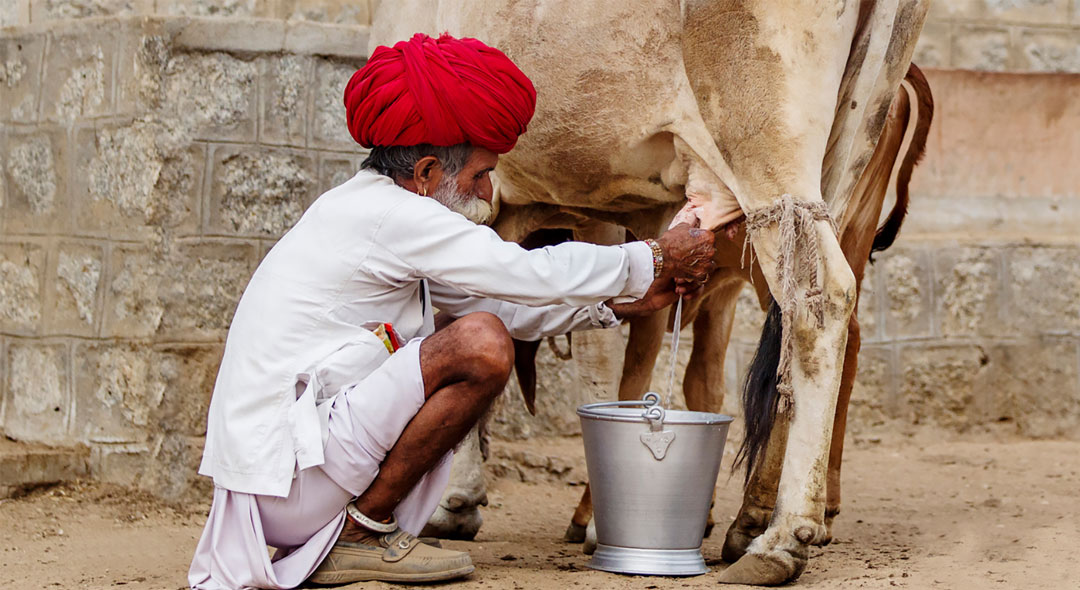Share this page

Alignment with SDGs
AUTHOR
Member Secretary, INC-IDF, National Dairy Development Board, Anand, Gujarat, India
Abstract
Micronutrient malnutrition is a silent epidemic contributing to higher level of stunting, wasting and underweight issues among children in India. The issue is particularly pervasive in children, leading to impacted growth, affecting their physical and mental wellbeing. Among children under the age of five years in the country, more than 70 percent are deficient in Vitamin D, and 57 percent lacks adequate levels of Vitamin A. Malnutrition can impose significant costs on economic development in terms of reduced labour productivity, increased healthcare costs etc. This also stands as a major hurdle in the achievement of Sustainable Development Goals of Zero Hunger, Good Health and Well-being.
To address the issue of micronutrient deficiencies with a preventive approach, National Dairy Development Board (NDDB), the apex body for dairy sector in India has initiated the project ‘Improved Nutrition through Milk Micronutrient Fortification’ under with the South Asia Food and Nutrition Initiative (SAFANSI) of World Bank in the year 2017. The initiative was also joined by Tata Trusts, Food Fortification Resource Centre of the Food Safety and Standards Authority of India (FSSAI) and the dairy cooperatives across the country. The Milk Fortification Project aimed at fortifying milk with Vitamin A and D, and for consumer promotion and scale up. Fortification is a simple, powerful, and cost- effective nutrition intervention with a potential to address micronutrient deficiencies on a large scale. Since milk is a natural source of many vitamins, it is a right vehicle for fortification and is a staple food in India consumed by people from all age groups.
Food fortification
Both technical and financial support was provided to the dairy cooperatives under the project. NDDB has developed the Standard Operating Procedures (SOPs) for fortification and testing. To build consensus among the industry partners and to engage them by sharing knowledge and resources on food fortification, multiple consultations and events were organized at national, regional and state levels by NDDB, Tata Trusts and FFRC. This systematically strengthened the collaboration between all stakeholders and nudged the milk industry in general to adopt food fortification as an industry norm. Capacity building and training of dairy staff at the local level in all cooperatives was also provided along with technical assistance for endorsement of +F logo – the identifier of fortified foods, and labelling.
The dairy cooperatives were also supported for ensuring quality control measures and quality assurance protocols including testing of fortified milk and vitamin premix samples collected from the dairies. Apart from this, to generate and improve consumer demand, various communication campaigns were supported including participation by the dairies in the Eat Right India movement of FSSAI (https://www.youtube.com/watch?v=rm_5RSgqs7g). NDDB also initiated advocacy with the government on different ways to scale up milk fortification in the country. In the states-initiated milk fortification, the respective state governments were also involved and have encouraged its population to include fortified milk in their consumption. The project duration was 23 months and has achieved the target of fortifying more than 2 million metric tonnes of milk.
Dairy products are nutrient-dense foods, supplying significant amounts of energy, high-quality protein and micronutrients, including calcium, magnesium, selenium, riboflavin, and vitamins B5 and B12 in one single food.
Meenesh Shah - Member Secretary, INC-IDF Tweet
Results
The efforts led to aligning the supply and demand for fortified milk in the market. It ensured that the dairy cooperatives are equipped to produce fortified milk, and it is reaching consumers at affordable prices. Significant progress has been made in terms of open market availability of fortified milk across the country. Currently, around 30 cooperative brands are fortifying milk and reaching consumers across 23 states of India. Apart from this, many private players also have started fortifying milk leading to achieving industry readiness to ensure the supply of fortified milk to a larger population.
To ensure better health and nutrition for all citizens, it is the need of the hour to integrate fortification into all government safety net programmes. The current Covid-19 scenario also suggests for a more universal approach and provision of more essential and nutritious commodities under the purview of social benefit schemes as the chances of pandemic induced poverty and malnourishment is huge. To provide essential micronutrients to the most vulnerable sections of the society, it is suggested to consider liquid milk/pouch milk marketed by organized sector for mandatory fortification. NDDB would continue to work towards this agenda and to make fortified foods available in the open market for all.






